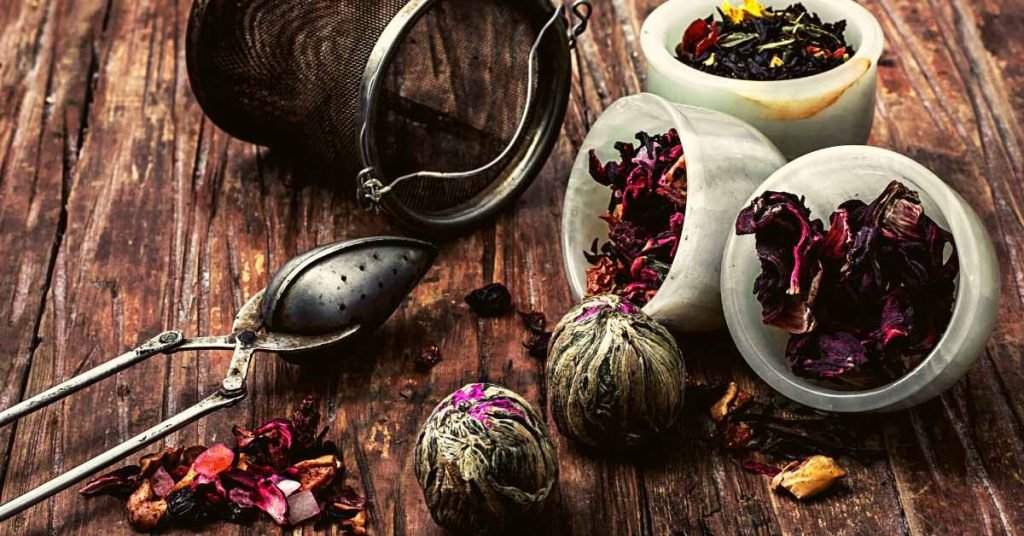Tea and herbs have been consumed for centuries, not only for their unique flavors but also for their potential effects on mood and well-being.
In recent years, scientific research has delved into the intricate relationship between bioactive compounds in teas and herbs and their impact on the human brain and mood.
This article explores the fascinating world of how teas and herbs can influence our mood, backed by scientific evidence.
The Neurochemistry of Mood Regulation

Understanding the science behind mood regulation involves examining neurotransmitters, the chemical messengers in the brain responsible for transmitting signals between nerve cells.
Serotonin, dopamine, and gamma-aminobutyric acid (GABA) are key neurotransmitters associated with mood.
Various compounds present in teas and herbs have been found to interact with these neurotransmitter systems.
Tea Polyphenols and Catechins
Tea, particularly green tea, is rich in polyphenols and catechins.
Epigallocatechin gallate (EGCG), a major catechin in green tea, has been studied for its potential mood-enhancing effects.
Research suggests that EGCG may modulate serotonin and dopamine levels, contributing to improved mood and reduced feelings of anxiety.
Herbal Adaptogens
Certain herbs, known as adaptogens, have gained attention for their potential to help the body adapt to stress and restore balance.
Adaptogens like Rhodiola rosea, Ashwagandha, and Holy Basil (Tulsi) have been studied for their ability to modulate the release of stress hormones such as cortisol.
By reducing the impact of stress on the body, these herbs may indirectly influence mood.
L-Theanine in Tea

L-Theanine, an amino acid found in tea leaves, is known for its calming effects. It has been shown to increase alpha brain wave activity, promoting a state of relaxed alertness.
In combination with caffeine, as found in tea, L-Theanine may mitigate the jittery effects of caffeine and provide a more balanced and focused energy.
Aromatherapy and Herbal Scents
The aroma of teas and herbal infusions can also impact mood through the olfactory system.
Aromatherapy, which involves inhaling the aroma of essential oils or herbal infusions, has been linked to changes in mood, stress reduction, and relaxation.
Compounds in certain herbs may interact with receptors in the brain, influencing mood and emotional responses.
Flavonoids and Brain Health
Flavonoids, abundant in many teas and herbs, have been associated with cognitive benefits and improved brain health.
These compounds may enhance blood flow to the brain, protect against oxidative stress, and support neuronal function.
A healthy brain is essential for maintaining a positive mood and emotional well-being.
Gut-Brain Connection

Emerging research highlights the bidirectional communication between the gut and the brain, known as the gut-brain axis.
Herbal teas, such as peppermint and ginger, have been studied for their potential to influence gut microbiota and promote a healthy digestive system.
The connection between gut health and mood suggests that herbal teas may indirectly impact emotional well-being through their effects on the gut-brain axis.
Final Word
The relationship between teas, herbs, and mood is a complex interplay of bioactive compounds, neurotransmitters, and physiological responses.
While the science behind these interactions is still evolving, the evidence suggests that incorporating a variety of teas and herbs into one’s diet may contribute to overall well-being and mood regulation.
As research continues, a deeper understanding of the mechanisms underlying these effects will likely emerge, providing further insights into the potential therapeutic applications of teas and herbs for mental health.




